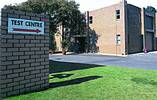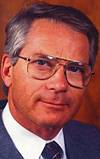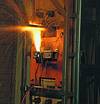

Circuit Breaker Industries (CBI), today part of JSE-listed Reunert Limited, has been a leading force in low voltage electrical protection products since 1949. The company was originally established as a joint venture with the US company, Heinemann Electric, to distribute the latter's products in South Africa. From the early '60s CBI began to invest in its own product development, becoming this country's sole manufacturer of circuit breakers and residual current devices.
Today the company is justifiably proud of the fact that some 90% of its sales of manufactured products emanate from its own local developments on which, in many instances, international patents are held. In order to keep its leading position in new and custom product development, CBI employs some 4% of its staff complement (>1300) in R&D.
The Barlow Rand Group bought out the original company, Heinemann SA, during 1986. It was placed in the Reunert stable, which also controlled another well-known South African company, namely Fuchs Electrical Industries. Later in 1986 the two companies were merged to create a new entity appropriately called Circuit Breaker Industries (particularly significant in today's era of the Internet as anyone searching for a circuit breaker will automatically call up CBI). The new name allowed more rapid integration of staff from the two merged companies and the well-established HY-MAG and Fuchs brand names were, initially, retained to ensure transparency in the marketplace.
In more recent times CBI has developed new strategies to address both the local and export markets. As CEO Helmuth Fischer remarked, "Luck is when preparation meets opportunity," and that materialised for CBI in two distinct areas. The first was the opportunity to purchase L&T Surge, which specialised in electrical surge products, and that acquisition was made last year. The second event was the decision by erstwhile competitor Mitsubishi to disinvest from the local market in terms of its own subsidiary. CBI has subsequently formed an alliance to distribute Mitsubishi products throughout Africa, using its own well-established distribution and support channels. The result has been gratifying for both companies with Mitsubishi sales having increased substantially since the agreement was signed in June 2001. In addition to this CBI has expanded into the metering business (same end-customer as for circuit breakers) and offers a wide range of products including prepayment meters and one of the smallest electronic kWh meters found in the world.

One of the many breakthroughs for the company, which has impacted internationally, was the development by Fuchs during 1957 of the highly sensitive electronic earth leakage device. Although the original product was developed to address the specific need of the mining industry, its rapid acceptance in the industry saw South Africa become the first country in the world to legislate the use of the earth leakage detection systems for both industrial and residential applications, dramatically reducing the number of accidental electrocutions. CBI remains the only company in the world to use hydraulic-magnetic circuit breaker technology across the board and its basic simplicity ensures fail-safe operation in all climates and environments.
In regard to its line of magnetic circuit breakers, CBI believes that its breadth of application knowledge together with the wide range of products makes the company the world leader. The magnetic technology allows variation in the characteristics of circuit breakers for special applications where mass production is not viable, cutting out a lucrative niche for the local company in an estimated R3 bn world market. As an example of CBI's success it was recently selected as the sole supplier of special circuit breakers to Chinese Railways, signalling system. The development of the standard household circuit breaker into a compact DIN-rail mounted module for export has won broad acceptance by the telecommunications industry. Several African countries are now also changing from fused power distribution systems to protection with circuit breakers.
Exports are nothing new for CBI and the European market was already well established in the Heinemann SA days. Unfortunately this early success was curtailed when Heinemann US established its own European operation, although the company was allowed to continue with significant sales to the Middle East region. With the new CBI identity and the cutting of all links to overseas stakeholders since 1986, the company had unrestricted access to the international marketplace and has in the words of Fischer, "...sold product to every continent except Antarctica". To aid this international export drive, subsidiaries have been established in both Europe (Germany) and North America. From a modest 6% of sales before the mid '90s, CBI expects to export some 25% of its sales this year. Future export growth is expected to be in the region of 40% per annum and CEO Helmuth Fischer expects that exports should eventually account for more than 70% of the company's business.

Entry into major international markets presented CBI with a new challenge in that it required the ability to rapidly design, develop and test prototype and custom products. To this end the company invested significantly and today boasts a state-of-the-art test facility, the only one of its kind in the southern hemisphere, with dedicated 30 kA DC and 65 kA AC fully computerised test bays. Most of the equipment in this facility, including the transformers, was designed and manufactured locally, and Eskom has provided a dedicated power line.
Today, circuit breakers can be tested to international standards for, amongst others, such properties as overload, endurance and vibration. CBI saves time and money through bringing UL auditors to this country to oversee tests and allow local certification. CBI was also the first local company to be awarded the Chinese Great Wall Mark for a circuit breaker. In August this year CBI received another distinction when it obtained a supervised manufacturer testing (SMT) certificate from CEBEC Belgium. CEBEC, an internationally accepted testing authority, is responsible for most of CBI's international product certification and this used to be carried out at the local facility under CEBEC observation. With the SMT, from next year the local company will be able to perform certification without direct supervision. All CBI products are mark-bearing and standards authorities to which they adhere include UL, VDE, SABS, CSA, BS, etc.
As a manufacturing company CBI is dedicated to quality and the concepts of total quality management. It was one of the first companies in South Africa to register to the SABS 0157 standard, a predecessor of the ISO 9000 series. Since 1989 the company operations have been certified to SABS ISO 9001 although more recently this was changed to TÜV witnessed registration to address the expectations of the export markets who are not familiar with the SABS. All CBI facilities possess 5 star NOSA safety ratings. While the head office, R&D, test facility and main manufacturing plant are located in Johannesburg; CBI operates three assembly facilities in Qwa Qwa in the Free State. The norm there is a staff complement of a maximum of 250 people at one plant, so that, preferably, the manager knows everyone by name. This has resulted in a loyal and productive work force that Fischer believes is equal to any overseas manufacturer with a similar labour intensive operation.
The manufacture of magnetic circuit breaker mechanical components is high precision work and CBI employs a higher than average number of skilled technical and engineering staff. In the '60s and '70s skilled staff were attracted to South Africa from Europe and, while apprentice training schemes have all but disappeared from South African industry, CBI has bucked this trend and kept its scheme in place to produce highly skilled local artisans. A two-year commercial training programme, run in collaboration with the German Chamber of Industries, offered to individuals who pass a rigorous screening process includes periods spent in various departments of the company to provide a well-rounded education. Initially using its own funding, today the company benefits from the proceeds of the government-training levy. Operators are, by and large, themselves responsible for the quality of what they produce and all staff is multiskilled through in-house training, allowing flexibility to adapt assembly to immediate market demands. As a result of the company's geographic location it is, to a large extent, integrated and capable of manufacturing most components, sub-assemblies and tooling requirements in-house.
The current dynamic CEO of CBI is Helmuth Fischer. Born in Germany, Helmuth was headhunted by his predecessor and joined the company in 1984, literally two hours after landing at Johannesburg International. Helmuth is only the second CEO in the company's 52-year history and he is extremely proud of the fact that in that time CBI has never shown a loss. He has both an engineering degree and the German equivalent of an MBA and believes fervently that South Africa's advantage is that we have no inherited history of blindly following the 'European example', despite the fact that close historic ties with Europe exist. His belief is that the route to be followed is one of looking around the world for the 'best practice'. This has resulted in South Africa having, not only an envied power distribution system, but also CBI's circuit breakers and earth leakage detection devices.
For more information contact Circuit Breaker Industries, 011 928 2000, [email protected], www.cbi.co.za
© Technews Publishing (Pty) Ltd | All Rights Reserved